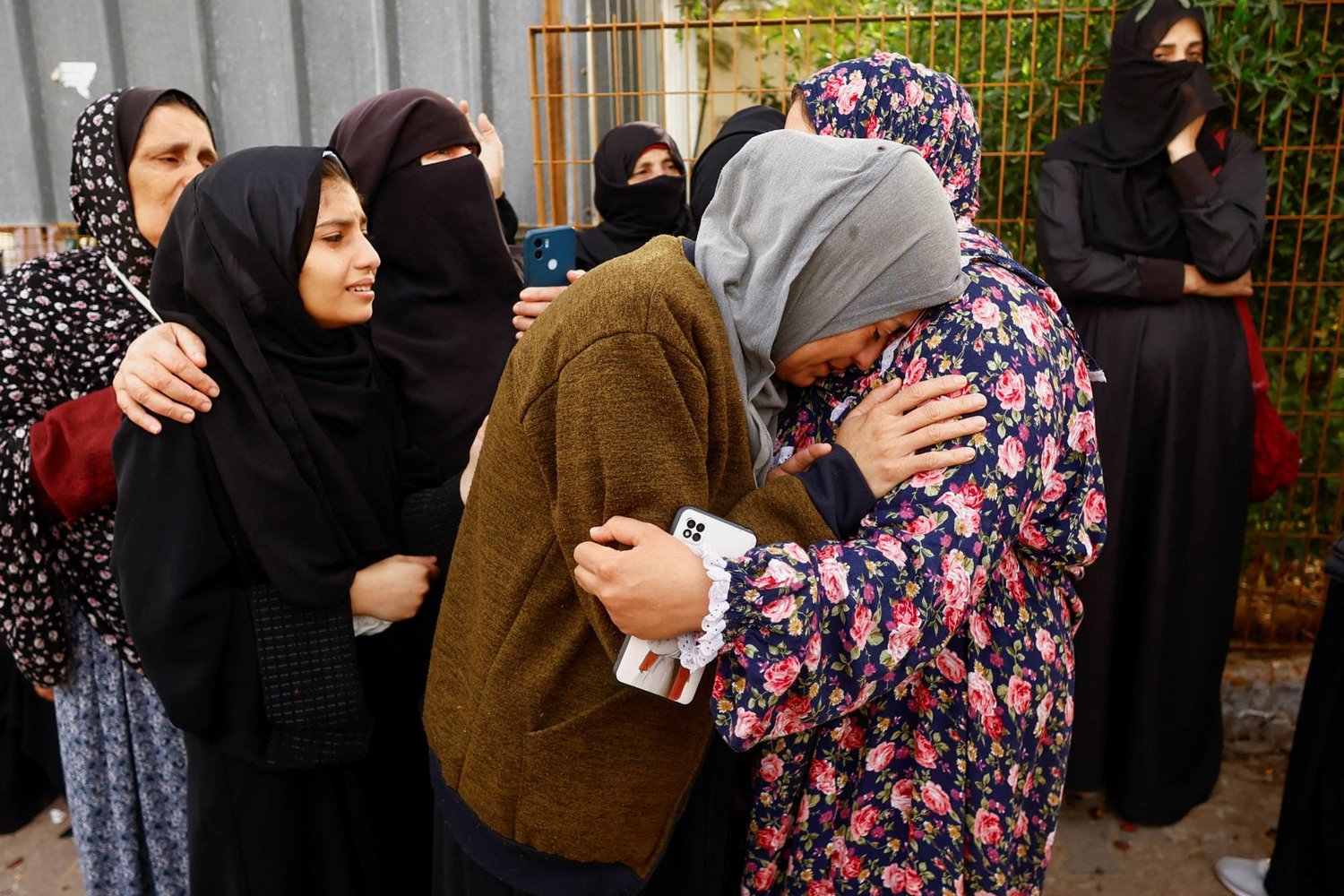Healthcare workers in Gaza are reporting a 300 percent increase in miscarriages among pregnant people since the start of Israeli bombardment on October 7, as stated by CARE’s regional advisor on protection and gender in emergencies Nour Beydoun in an interview with Jezebel.
Since the start of Israel’s aggressions and siege on Gaza, Gazans have had extremely limited access to proper healthcare as medicines have been barred from entering, hospitals have been continuously bombed, and healthcare professionals have been targetted and murdered.
Sometime in early December, healthcare workers had announced the total collapse of Gaza’s healthcare system. Three months onward, the number of deaths have exceeded 20K – over 10 percent of the total population in the strip – and injuries have gone above 60K.
A report released by the Palestinian Ministry of Health on January 18, 2024 revealed that only 15 out of Gaza’s 36 hospitals are partially functional, with nine in the south of the strip and six in the north.
The report added that “hospitals in the north are currently providing maternity, trauma, and emergency care services, but they encounter several challenges, including a shortage of medical staff such as specialized surgeons, neurosurgeons, and intensive care personnel.”
The collapse of the healthcare system has had disastrous effects on citizens of the strip – the videos and images demonstrating the true extent of the carnage and crisis have often verged on dystopian. This week, a video of a father amputating his daughter’s leg without any morphine and the appropriate medical tools, circulated widely online.
Other images show Gazans transporting the wounded on carriages, or strapping the dead to the roof of their cars, as various ambulances have been bombed and delegated out of service in the past three months.
Reproductive violence against women
One of the consequences of the collapse of the healthcare system is the reproductive violence perpetuated by Israel against women.
In various posts, Hind Khoudary took to social media platform X to express how she and other women have been struggling to secure female sanitary products across the strip.
Internally displaced women and girls have had to forgo proper sanitation and hygiene while on their cycles due to Israel’s bombardment and the destruction of their homes. A report by NPR says that the “United Nations Estimates that some 700,000 women and girls in Gaza experience menstrual cycles but don’t have adequate access now to basic hygiene products like pads, toilet paper, or even running water and toilets because of the war.”
The lack of access to proper hygiene exposes women to a variety of reproductive and urinary tract infections. As a result, many women have had to find urgent ways to cope with the situation.
In some cases, women consume birth control pills to stop having their periods all together. Others have had to use old clothes, towels or corners of their tents as pads.
The siege has also rendered healthy pregnancy an incredibly difficult thing for most women, who now have to battle a shortage of food and medical treatment.
The Palestinian Ministry of Health’s report notes that “following the Israeli occupation’s attacks on healthcare facilities and personnel, the available resources for assisting expectant mothers and their newborns have dramatically decreased, forcing some to give birth in makeshift tents and unsanitary locations.”
After giving birth, these complications increase due to a rise in the risk of infection and death. In the last month alone, 52,000 pregnant women have recorded, with nearly 183 births per day.
The report specified that “pregnant women and displaced children in shelters face challenges such as thirst, malnutrition, insufficient healthcare, dehydration, respiratory and skin ailments, severe cold, and lack of vaccinations. In a survey conducted on December 26, 2023, UNICEF highlighted significant concern regarding malnutrition, especially for pregnant women and breastfeeding mothers, along with over 135,000 children under the age of two.”
In a report released by Doctors Without Borders, medical professional Pascale Coissard Rogeret tells the story of how one Palestinian woman, Maha, went to a hospital to give birth and was unable to receive treatment as the delivery rooms were at capacity. Maha was forced to return to her tent and give birth in the latrines by her tent, which she and other Gazans have been using for shelter after being forcibly displayed. Her son later died.
The reproductive violence against women in Gaza, although less discussed than other aspects of the violence in mainstream media, will not only have disastrous effects on the bodies of Palestinian women, but is yet another way in which the Israeli occupation can perpetuate its genocidal campaign against Palestinians.
By purposefully placing women in harsh and hazardous conditions that potentially cause life-long reproductive complications, or by forcing newborn children into a world rid of proper healthcare and sanitation, Israel is attacking the very fiber of Palestinian life.
In its report, the Palestinian Ministry of Health once again listed its primary and most important demand, which it has been doing for the past three months – “immediate cessation of Israeli brutal war against Palestinian civilians.”


